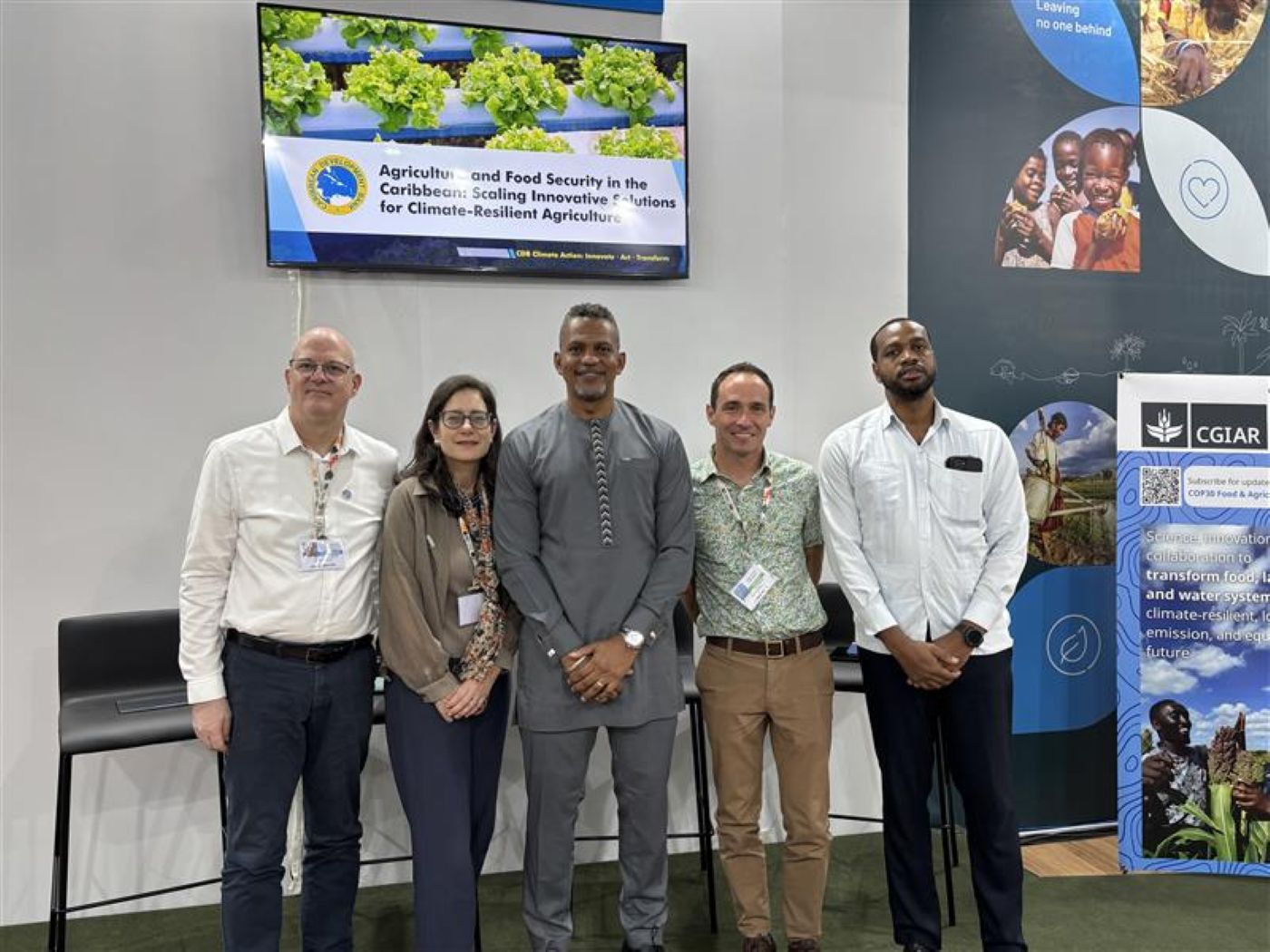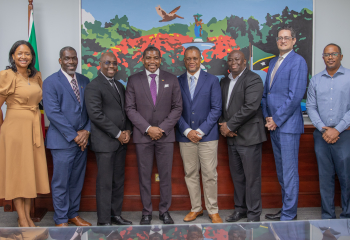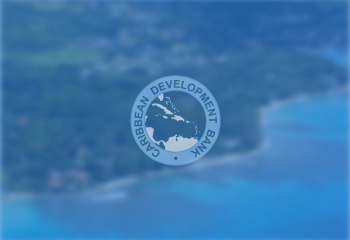Experts Warn Action is Needed for Caribbean Food Systems to Weather Climate Change

Caribbean agriculture faces an existential crisis as increasingly intense climate events devastate farming communities across the region, experts and development leaders warned at a critical side event during the 30th United Nations Climate Change Conference (COP30), which was held on November 10 – 21, 2025, in Belém, Brazil.
The Caribbean Development Bank (CDB, the Bank) convened panel discussion, "Agriculture and Food Security in the Caribbean: Scaling Innovative Solutions for Climate-Resilient Agriculture," brought together representatives from the CDB, the Green Climate Fund (GCF), the Food and Agriculture Organization of the United Nations (FAO), and CGIAR to address the urgent need for transformative climate action in Caribbean food systems.
In opening the discussion, CDB President Daniel M. Best cited the devastating impact of Hurricane Melissa, which recently ravaged Jamaica, noting that the agriculture sector is often among the hardest hit by climate shocks. “These are not one-off or sporadic events, and these are not hypothetical future scenarios. Our region is suffering right now from increasing temperatures, declining precipitation and rising sea levels, and every year these challenges are being compounded by major storms that are increasingly intense and develop with unprecedented speed. This is a one-two punch that fundamentally threatens our prospects for sustainable development,” he said.
Dr. Todd Rosenstock, Director of Climate Action at CGIAR, noted that extreme events affect not only agricultural production directly but entire value chains and food systems, making it essential to protect both individual farmers' productive assets and the overall supply chains that sustain Caribbean islands. However, he also underscored that for the Caribbean, the climate crisis is fundamentally a water crisis. "It's the prolonged droughts. It's the increased rainfall that's reducing the productive capacity of agricultural land. Really, addressing the water crisis is of the utmost importance,” Dr. Rosenstock explained.”
Ms. Kristin Lang, Director for the Latin America and Caribbean Region at the GCF Secretariat, took a similar position. “We're all seeing the issue of water security coming into play, and we can talk about food, but we can't have any food if we don't have any water.” Lang said, adding that “We need to address the issue of irrigation because you are going to see that rainfall is either too much or too little,”.
Mr. Martial Bernoux, Climate Change Team Leader at FAO, outlined three critical pillars necessary for transformation: policy frameworks, finance mechanisms, and data systems. However, he delivered a sobering warning on financing, citing the investment gap facing agriculture. "From the last two reported years, all sectors increased their amount of climate investment by 11%. Agriculture? 1%. This is the only sector that is not attracting enough investment."
He emphasised that public money alone cannot meet the scale of transformation needed. "We need trillions. It's not billions. And to have those trillions, we need to direct investment toward this sector and show that investing in this sector works."
All panellists stressed the critical importance of placing farmers, fishers, and rural communities at the centre of climate solutions. The experts also agreed that while challenges are formidable, solutions exist and must be scaled urgently.
The panel discussion is one of several knowledge-sharing and advocacy events CDB hosted or supported at COP 30. The Bank’s main objective at the global forum was to amplify the deleterious impacts of climate change on the Caribbean’s sustainable development thrust and garner support for effective solutions.

